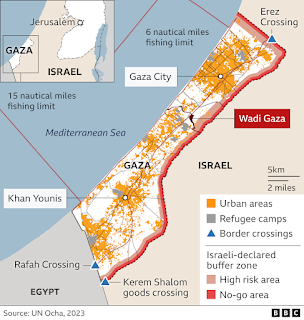Pan-Africanism & Socialization
The average Jamaican is seemingly
not concerned about issues relating to Pan-Africanism. This was evident in the low turnout at a
recently held Pan-African public symposium at the University of the West
Indies. Despite, a population of more than 90 per cent African ancestry, a
significant percentage of the populace do not view themselves as descendants of
Africans or Afro-Jamaicans. This separation and arguably denial of our history is
largely due to how the society has been cultured and schooled. To a large
extent the society pays little attention to our historical grounding and this
lack of historical significance is demonstrated in the in the growing number of
our young men and women who bleach their skin.
It bears thought that for many of us a sense of self and personhood is
the missing link between believing in our own sense of self and how we fit into
and contribute productively to the society. Additionally, the issue of poor self-esteem
exhibit by some of our students’ stems in part to an education system in which History
is optional at the secondary level. A significant number of students shy away
from the subject. It can be argued that the society’s level of black
consciousness is largely dormant, added to this the education system in part fosters
this quiescent attitude. On Friday, May 26, 2017, the Department of Sociology, Psychology
and Social Work in collaboration with the UWI Pan-African Consortium of the
University of the West Indies, Mona, hosted an African Liberation Day
Symposium. The theme of the forum was “Peter Abrahams: A forgotten
Pan-Africanist”. The presenters Professor Rupert Lewis, Dr. Michael Barnett,
Dr. Shani Roper and veteran journalist, Earl Moxam all did a excellent job at
discussing aspects of Peter Abraham’s life and work while making the connection
to African Liberation Day which was commemorated a day earlier on Thursday, May
25. The presenters were excellent in highlighting
how involved Peter Abrahams was in early years of the Pan Africanism movement.
In fact, Abrahams was the last surviving member of the organizing committee of
the Fifth- Pan African Congress held in 1945 at the time of his death in 2017.The
turnout for such an important event was low, thus reinforcing the perception
that the scholarship and activism surrounding Pan- Africanism is rooted mainly
in the halls of academia. We should not fool ourselves; we are still on the
plantation. What we now have are new colonial masters, very much steep in the
Anglo-Saxon culture, far removed from our historical journey and socialization.
We must remember that many decisions which affect our daily lives are made in
European or North America even though we political independent. Despite the
progress we have made as a society and as individuals, it can be argued that collectively
we are still shackled in this era of neo-colonialism, chained by institutions
and processes which are Eurocentric in nature and scope. Professor Rupert Lewis
argued that fiction writing and journalism were central to Pan-Africanism as
embraced by Abrahams. Professor Lewis was also concerned about the sociology of
the elderly. He added that the elderly are at particular risk to criminal
violence. The society was shocked and outraged recently at the rape and murder of
88 year old, Nettie Rowe, of Runaway Bay, St. Ann. Regrettably, Abrahams
himself fell victim to the level of violence which targets the old and
vulnerable in the society on January 18, 2017 at age 97. Dr. Michael Barnett, bemoaned
the fact that so few outlets are available for Pan-Africanism in the media
landscape. It must be noted that while we commemorated African Liberation Day,
we are mindful that many of our African leaders have plundered the coffers of
their respective countries and in a sense have caged their own people resulting
in the continent of Africa not realizing its full potential. The time is now to
revisit and recast a new vision of Pan-Africanism in order to move our people
of African descent to that level where entrepreneurship becomes the engine of
growth and advancement. Pan-Africanism is
an ideology and movement which promote and support solidarity of Africans
globally. We all need to get involved in some form of advocacy and activism in
order to keep the awareness of black pride and consciousness alive. In the
prophetic and powerful words of Marcus Mosiah Garvey, a race that is solely
dependent upon another for economic existence sooner or later dies.
Wayne Campbell is an educator and social commentator with an interest in development policies as they affect culture and or gender issues.
waykam@yahoo.com
@WayneCamo
#elderly #panafricanism #blackconsciousness #ideology #activism #advocacy #racism

Wayne Campbell is an educator and social commentator with an interest in development policies as they affect culture and or gender issues.
waykam@yahoo.com
@WayneCamo
#elderly #panafricanism #blackconsciousness #ideology #activism #advocacy #racism



Comments
Post a Comment